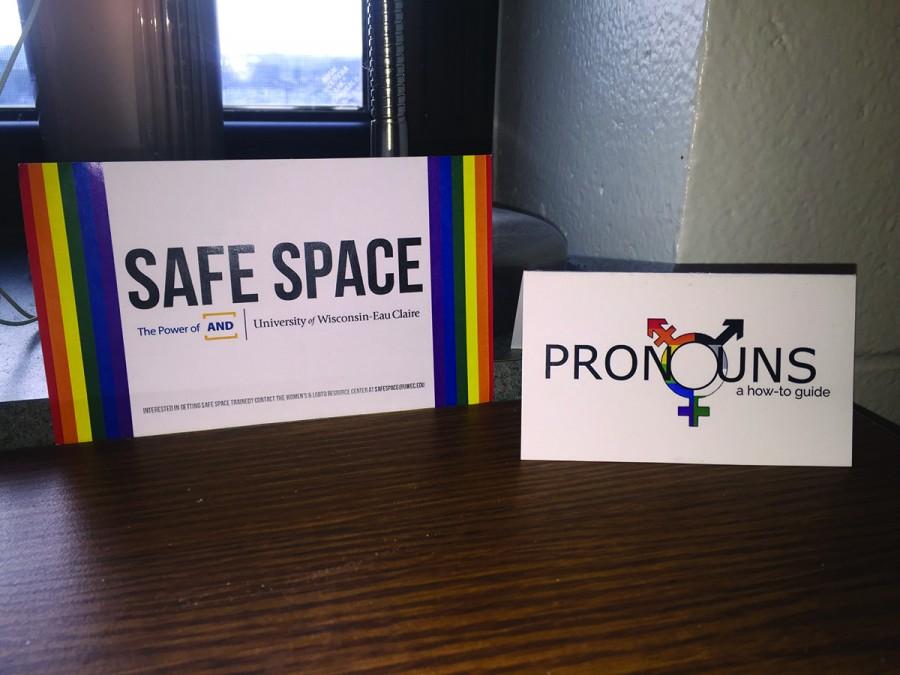Safe Space Training hosted to help students understand reality of gender orientation
Training program offered to all students who want to learn about respecting others’ identity
More stories from John Mattison
Photo by John Mattison
Safe space training programs are available for all students in order to generate new knowledge and answer questions regarding safe space, sexual orientation and gender identity.
After UW-Eau Claire changed the Homecoming titles from “King and Queen” to “Royalty” and provided gender-neutral bathrooms, an Eau Claire organization took another step toward creating safe space on campus.
Devin Dawson, president of PRIDE, led a training program focused on safe space Dec. 1 in the Chancellor’s Room of the Davies Center.
Those who complete this training program become safe space certified and will have a broader understanding of the LGBTQIA+ community.
The LGBTQIA+ community includes people who are lesbian, gay, bisexual, transgender, queer/questioning, intersex, asexual and others.
The two-hour training program consisted of multiple training methods including short films, video clips, worksheets and group discussions in order to accommodate students who had questions about safe space.
Dawson explained all the types of gender identity in the training. They used real-life and personal experiences when clarifying exactly what characteristics each gender identity entails.
Overall, five students showed up to express interest in safe space, LGBTQIA+ and PRIDE.
A consistent topic brought up throughout the training was the importance of gender pronouns. “Mis-gendering” is a term the videos addressed. The videos explained how disrespectful it can be to an individual when someone questions their identity.
“If you’re not sure, ask. When someone tells you who they are, believe them,” the video said.
In addition mis-gendering, other issues such as workforce controversies were discussed. According to the presentation, 29 states can legally fire an employee for being homosexual and 34 states can do the same if one is transgender.
Dawson presented an array of statistics that illustrated how difficult it can be to be a homosexual, transgender or asexual individual.
“40 percent of individuals under the age of 18 become homeless due to family religious views, and the dropout rate is three times more likely for homosexuals as compared to heterosexuals,” Dawson said.
Dawson repeatedly expressed how important it is to be an ally. An ally is someone who advocates and stands up for the LGBTQIA+ community, even if the individual is not a member of their community, Dawson said.
“Reading social media, news and blogs is a must. It’s all about the impact you can make,” Dawson said. “Being silent is the worst thing you can do. Being silent only allows for the oppression to continue.”
Dawson also said all allies should strive to listen and be open-minded.
These training programs enable the university to be a more inclusive,welcoming and safe environment for all Blugolds, Dawson said, regardless of their sexual orientation or gender identity.

